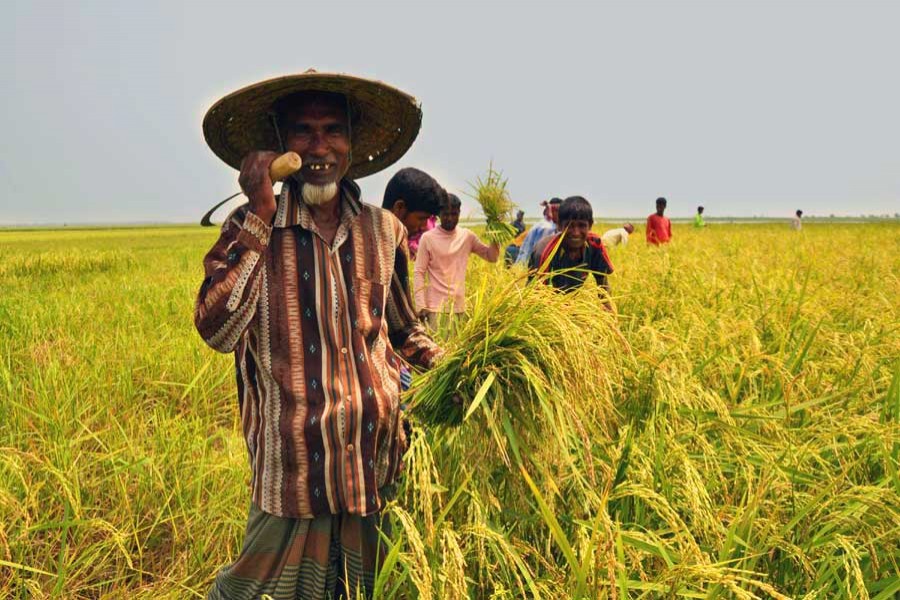
Published :
Updated :

Once there was a time when the barn of a farmer was full of paddy and the pond was full of fishes. They had no shortage of these food items. The paddy and other crops they produced in their fields were enough to meet the need of the family round the year. During the off-season, especially the rainy season, they had not much to do. So, they used to sit together to spend time gossiping or reciting puthi that means poetic fairy tales or religious stories. But those days are gone now. It has become difficult for the farmers to continue farming anymore. The production cost has gone up. On the other hand, they are not getting the fair prices for their produce despite working hard during the whole season.
There has emerged a section of middlemen. They buy the produce from the farmers at throwaway prices. But they sell it to the retailers at higher prices. When the retailers sell the produce to the consumers, the prices again go up because of the transport cost, profit margins and other factors. When we buy a cauliflower at Tk 60 in Dhaka, we may not know that the farmer who produced it and nurtured it during the whole season sold it just at a throwaway price. In our country the farmers who feed the nation are not financially solvent despite toiling in their fields from dawn to dusk. In the countryside, it is often found that the farmers are growing a different crop on the fields where they once produced sugarcane, jute or other crops. In the US a farmer is a rich person. He owns a car, leads an affluent life. But in our country, the farmers are neglected. So, a farmer does not want his son to be a farmer. He sends his son to school. He even sells whatever he has to give the son higher education so that he can get a government job or any other work that is rewarding. When a large number of candidates vie for a limited number of jobs, it creates the scope for corruption. But in the past when the farmers were self-sufficient, corruption was not prevalent that much.
It is heartening to note that many educated youths are going back to the countryside instead of looking for government jobs. They are growing different fruits, vegetables and other crops. They are farming fishes, rearing cattle or trying occupations. They are introducing technology and new farming methods. They are rewriting the rules of farming. The government should look into how best it can protect their interest.
The agricultural produce from Bangladesh has limited access to the international market. We can further widen the access. A large number of non-resident Bangladeshis are staying abroad. They can be the initial potential buyers. Small countries like the Netherlands earn billions of dollars from its export of farm goods.
Reportedly Bangladesh is the third highest producer of freshwater fish and vegetable in the world. When it comes to jackfruit, it ranks second and for mango, it ranks eighth. However, its export of farm produce is as low as 2.47 per cent of the total whereas it is 11.66 per cent in India, 19.01 per cent in Pakistan and 14.31 per cent in Thailand. That attests to how great the potential is for export of our farm produce. If we can tap the potential, the farming sector will help reduce the joblessness and at the same time augment the inflow of the much-needed foreign exchange.


 For all latest news, follow The Financial Express Google News channel.
For all latest news, follow The Financial Express Google News channel.